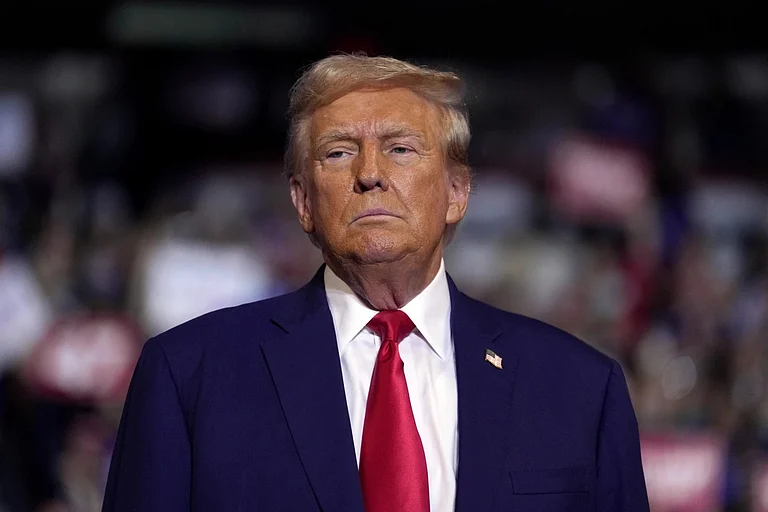As a fragile ceasefire hangs by a thread over Iran and Israel, US President Donald Trump, the man responsible for the truce, is clearly angry and frustrated over Israel not falling in line with his peace move. He is irritated with Iran as well, but much more so with his friend Benjamin Netanyahu for unloading a pack of bombs over Central Tehran soon after he announced a ceasefire on social media.
Iran-Israel Conflict: An Uneasy Truce
Trump’s reputation as a peacemaker is at stake. So, the US will push hard to keep the ceasefire in place.
Israel possibly wanted to do as much damage as possible before the deadline, and fired a couple of missiles at Israel in retaliation.
"I am not happy with Israel", a clearly frustrated and angry Trump told reporters in Washington, moments before leaving for The Hague to attend the NATO summit.
Using a cussword, the President said, "Don’t know what the F---- they’re doing’’, as he walked away.
He promised to call Netanyahu from the plane. CNN has reported that the phone call did happen and Netanyahu was advised not to disrupt the ceasefire.
The Israeli PM’s office later clarified that Israel would hold its fire. It is unlikely that Netanyahu will defy Trump’s orders, considering the President has done him a great favour by sending in the Stealth bombers to strike at Iran’s nuclear facilities in Fordow, Natanz and Isfahan.
For the US President, it is imperative that his peace move must succeed, having failed to do so in Gaza and Ukraine. While campaigning for the Presidential elections, Trump had promised to stop the war in Ukraine and Gaza, accusing former President Joe Biden of being too weak to do so.
Once in office, Trump realised that making peace was much more complex. The President believes that his best chance is now. According to reports in the US press, Trump was in a celebratory mood after announcing the ceasefire. But his mood changed when the tit-for tat strikes continued. He has put his reputation on the line with the ceasefire and will do his best to enforce it.
It all began late Monday after a dramatic escalation by Iran when it fired missiles at the Al Udeid base, one of America’s largest bases, in Qatar. But it was only a symbolic attack as both Qatar and the US were informed in advance. That attack was a message to the people of Iran that the regime was not buckling under pressure.
Hours later on Monday night, Donald Trump announced the ceasefire, which kicked in after a couple of hours. Though Israel has accused Iran of violating the ceasefire, Tehran insists that it has not fired a single missile since the ceasefire came into effect.
Militarily weakened, Iran views the ceasefire as a crucial first step toward stabilising the country and restoring the regime’s battered prestige. But Tehran is also determined to draw a clear red line: Israel must not be allowed to strike at will. That’s why, even if Iran’s retaliatory attacks lack impact, Tehran feels compelled to respond to every strike ordered by Netanyahu.
Israel, on the other hand, emerges as the clear victor so far. The IDF appears intent on replicating its strategy from Gaza, Lebanon, and Syria, launching strikes at will whenever it perceives a threat. But Iran has made it clear that such actions inside its borders will not go unanswered.
The question now is whether Trump can rein in Israel and Iran to enforce the fragile truce. Once that is done, the US has to get Iran back to the table to negotiate a fresh nuclear agreement. Trump had walked out of the Obama-era deal in 2018.

